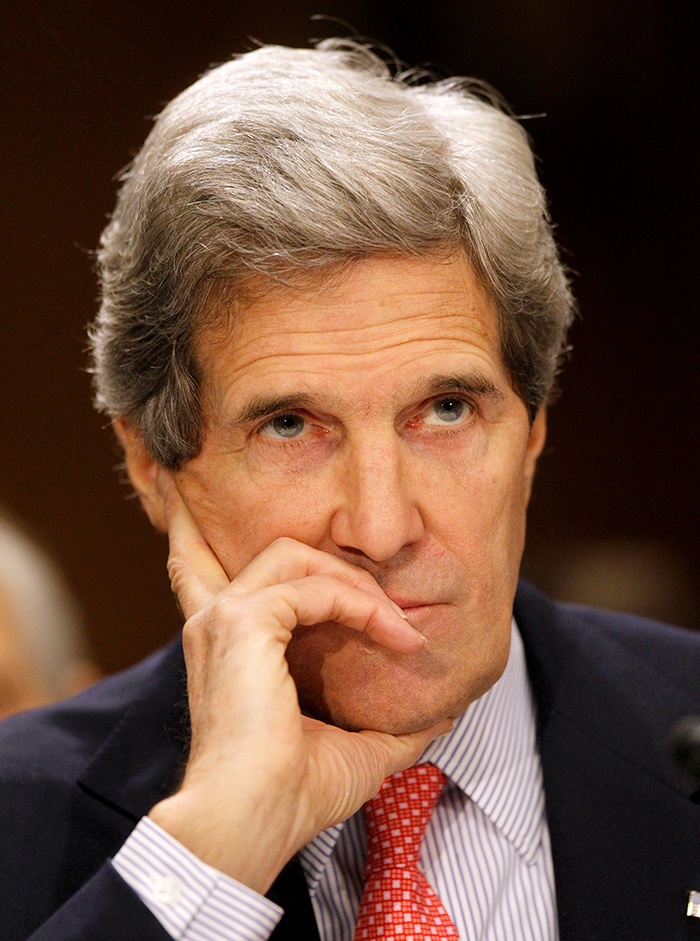
This op-ed originally appeared on The Hill's Congress blog.
Secretary of State John Kerry will attend the African Union Heads of State Summit this weekend. Kerry’s participation in the summit — which marks 50 years of African regional cooperation — presents an opportunity to improve leverage for substantive outcomes. In partnership with African leaders, Kerry can help ensure that this summit has an impact by pushing for credible peace processes in Africa’s two deadliest wars: Sudan and Congo.
Sudan has been ripped apart by conflict for much of the last six decades. Negotiations leading to the 2011 independence of South Sudan were largely successful. However, the two countries require mediation to ensure that they implement post-secession commitments to peace and mutual viability. International efforts to bring peace to Sudan’s embattled regions of Darfur, South Kordofan and Blue Nile have failed. War is escalating in all three areas, and rebels are coordinating their actions under the Sudan Revolutionary Front (SRF).
Additionally, the two Sudans’ continued inability to agree on the final status of the disputed, oil-producing region of Abyei is destabilizing. A primary reason for the failure of attempts to end the wars in Sudan is that the peace processes for each region have been isolated from one another. No process has addressed the root causes of continuing conflict in the Sudans: the absence of credible arrangements to share power and wealth; and inclusive, democratic governance.
The African Union and Kerry can remedy these problems by pressing for the construction of a unified peace process for all of Sudan’s regions. The process should include elements of the opposition, civil society groups, women and youth. It should focus on recalibrating relations between the center and the periphery and on expanding political space so that Sudan meets the conditions for internationally certified, free and fair elections in 2015.
The current approach of pursuing separate deals for Darfur, South Kordofan, Blue Nile and the East will increase conflict, not end it. The African Union could make a contribution by articulating the continent’s commitment to facilitating a holistic peace process between the Sudans. Congo’s war has been even deadlier than Sudan’s. More than five million people have died since the mid-1990s in eastern Congo. As in Sudan, the lack of a credible peace process that addresses the drivers of violence and disinvestment in functioning democratic institutions are the main culprits.
The recent appointment of former Irish President Mary Robinson as the U.N. special envoy for Africa’s Great Lakes Region provides a new opening. African heads of state, with the cooperation of the U.S. and other countries, should highlight the need for a forum between the Congo, Rwanda and Uganda as part of the peace process to address the economic and security issues that have helped fuel conflict in eastern Congo, as well as democratization within Congo.
In particular, an African Union focus on the importance in the Great Lakes of setting up credible mechanisms to stop illegal minerals smuggling, instituting transparency and rule of law in natural resource concession deals, and prioritizing cross-border infrastructure would help unlock significantly increased international investment in a conflict-free natural resources trade in the region. These steps could spur progress in the peace process, as they would increase the size of the economic pie in the region, so that it would be far more profitable for Congo, Rwanda and Uganda to cooperate than to fight over the spoils of a dwindling, illegal trade. Economics should be used as the greatest point of leverage for peace within Congo and between Congo and its neighbors.
The issues to be dealt with in effective peace processes are complex, and will require careful mediation to hammer out agreements on economic, security, and political issues. The African Union should demand that such processes be created, and provide support for them. Kerry can help to secure international leverage to bring the parties to the table and amplify voices for peace in Sudan and Congo. His leadership demonstrates an increased U.S. investment in peace in Africa’s two deadliest wars. With U.S. envoys to both conflicts on the verge of being appointed, the U.S. can make a major contribution to ending some of the most intense war-induced agony on the face of the earth.
Prendergast is co-founder of the Enough Project at the Center for American Progress in Washington, D.C., where Lezhnev is a senior policy analyst and Kumar is a Sudan and South Sudan policy analyst.
Photo: Secretary of State John Kerry (AP).

